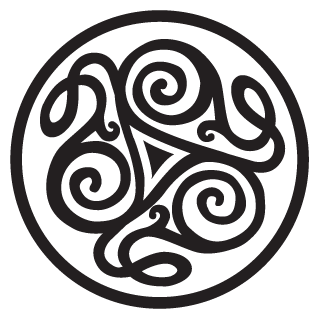Internal Family Systems
Internal Family Systems is based on the concept that we all have different parts. These parts are like inner personalities that have different opinions, perspectives and emotions. Like an external family, they can work and play together harmoniously or be in conflict.
The mantra in IFS is ‘All parts are welcome’.
Problematic behaviours and overwhelming emotions are often trying to protect us. When these parts of us are invited to share their story and are relieved of burdens, they are free to take on new beneficial roles in our system.
I offer Internal Family Systems (IFS) as part of an ongoing therapeutic journey of weekly or fortnightly sessions, or on a short-term basis to explore a specific block or area of conflict.

“Something hidden. Go and find it. Go and look behind the Ranges. Something lost behind the Ranges. Lost and waiting for you.”
— Rudyard Kipling
What is Internal Family Systems?
Internal Family Systems is a trauma-informed, psycho-spiritual model of therapy. It accepts the natural multiplicity of the human mind - seeing us as complex and multi-faceted. IFS was developed by Richard Schwartz who, through working with his clients, realised that seemingly problematic behaviours were often protective parts trying to prevent the person from coming to harm as they had experienced in the past.
What are ‘parts’ in IFS?
In IFS, parts are categorised are managers, firefighters and exiles.
Both managers and firefighters are classed as protectors. These are often younger parts of ourselves that have taken on adult roles in an attempt to defend the system from emotional, psychological, or physical harm. While managers tend to do this in a way that is seen as socially acceptable (working or exercising excessively, food management, perfectionism and self-control), firefighters are more extreme and turn to addictive behaviours, self-harm or actions that seem overtly destructive.
Exiles are wounded and often very young parts of the system that are being defended or protected. They are often shut away because they hold raw, unprocessed emotion that can easily overwhelm the system.
Parts are typically younger aspects of ourselves that have become trapped in a traumatic point in the past and believe that the danger is still present. It is important to note that trauma does not need to be severe to have a significant impact on our system and way of being. Everyone has experienced times in their lives when they have felt helpless or alone. When we are young, things that we may see from an adult perspective as being minor can seem very scary indeed. These experiences can continue to have an impact on us many years later.
One perspective on parts is that they are different neural constellations or networks in our brain. As a result of being disconnected (trapped in a trauma-point) they are not likely to have access to our current knowledge, life experience or resources.
The idea in IFS is that when we can access the core part of ourselves - the Self, we are fully integrated and in harmony.
How do ‘parts’ show up in IFS?
In Internal Family Systems, parts can make themselves known in many different ways. They can show up through an inner voice or sound, images or colours and shapes. They can appear as lifelike personalities, archetypal characters, or more cartoon-like beings. In these types of forms they may have particular clothing, accents and ways of being. Parts can also manifest through physical sensations, tension in the body, or specific movements. Sometimes, a part will have access to a memory and will show this to us. All of these things are viewed as trailheads that can show us a path to healing a wounded part and releasing unhelpful beliefs or burdens from the past.
Can IFS address spiritual energies?
IFS is a psychological and spiritual approach. In a traditional IFS approach the term legacy burdens is used to refer to parts or patterns beyond our lifetime that are presenting challenges for us. These parts or patterns may have been seen as important by our ancestors but are less appropriate for us, yet the pattern is still ‘running’. When legacy burdens are released as part of the healing process, we can bring in gifts from our family line instead.
In some cases, we can be holding energies that are not part of our system or the larger field of our family influences. In many cultures, these are viewed as spiritual entities or energies. Sometimes we can unintentionally pick up spiritual energies, or they can become attached to us. These energies can drain or block our energy, affect our emotions, and undermine our overall wellbeing. Clearing these external energies can often liberate our life force, and help to remove apparently intractable blocks.
